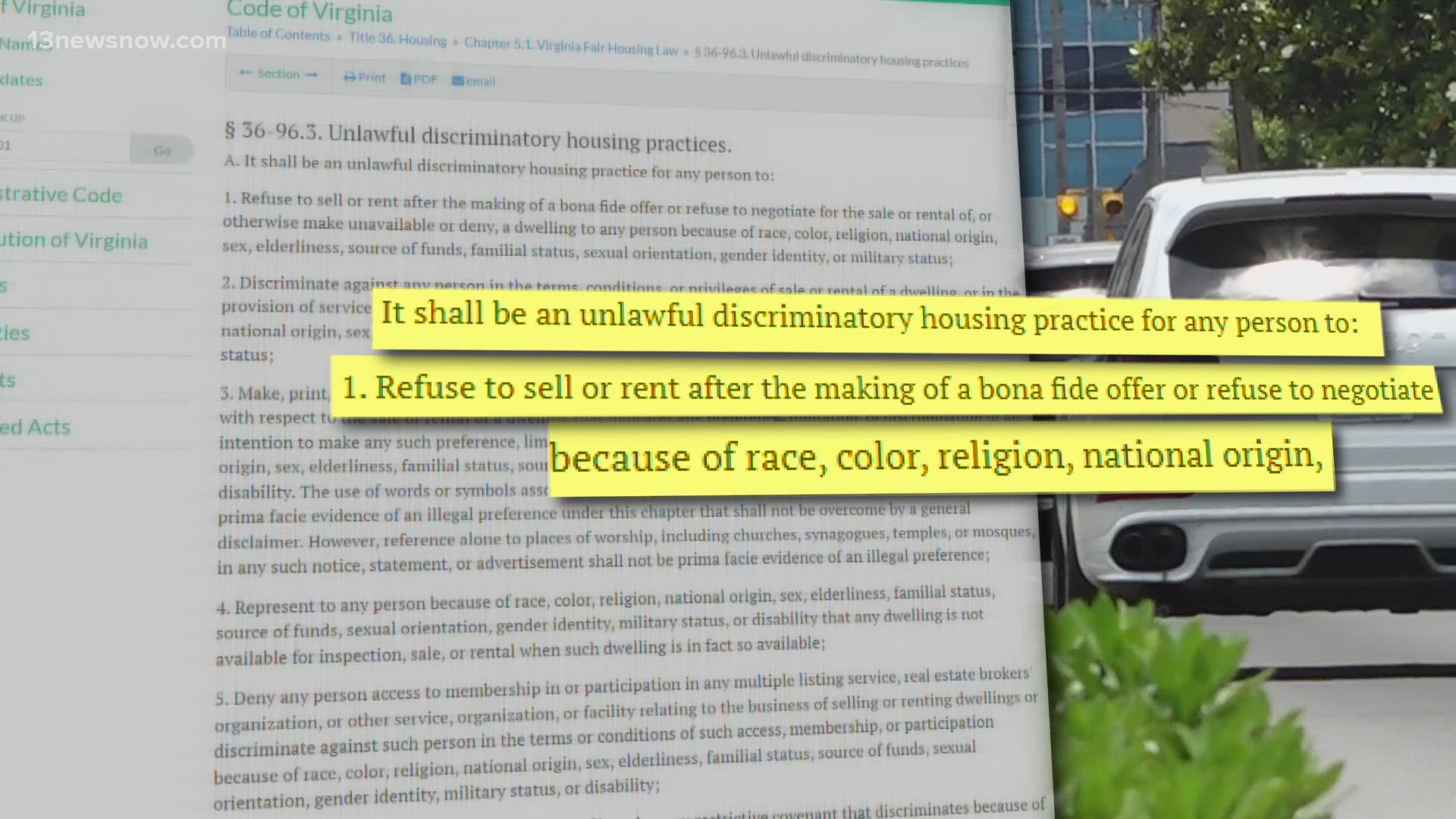VIRGINIA BEACH, Va. — Protections under Virginia's fair housing laws may open the door for civil action, a legal analyst said, in the case of a Virginia Beach condo sale after a Black woman and her real estate agents say the homeowner tried to back out of the sale over her race.
The property for sale is located between the Old Beach and North End neighborhoods, near the Oceanfront.
Public records show the homeowner is a woman named Jane Walker. The woman who wants to buy the property is Dr. Raven Baxter, a molecular biologist and science educator who landed on Forbes' 30 Under 30 list in 2022.
On May 18, Dr. Baxter made a post about the condo sale on social media that has gone viral: despite "the inspection, contract agreement, [and a] down payment," her realtor's broker told her the seller didn't want to sell her the home because she was Black. On May 31, The New York Times published an article detailing the whole ordeal.
Baxter's real estate brokers told 13News Now the same story and provided record keeping to support it.
The woman who answered the door at the condo this week did not wish to provide comment for this story.
RELATED: Seller tries to halt Virginia Beach condo sale after learning homebuyer's race, realtors say
“The Fair Housing Act on the federal level and state level prevents individuals — which is key — and entities from discriminating against people based on race or other protected classes," legal analyst Ed Booth told 13News Now.
However, in the 2024 fiscal year, the Virginia Fair Housing Office investigated 316 complaints across the state. Of those 316, about 20% occurred in the Tidewater region.
"Discriminatory action was most often reported under the protected classes of disability, race, or sex," said communications manager John Robertson IV.
In the state code, it stipulates civil action:
"An aggrieved person may commence a civil action in an appropriate United States district court or state court not later than two years after the occurrence or the termination of an alleged discriminatory housing practice, or the breach of a conciliation agreement entered into under this chapter, whichever occurs last, to obtain appropriate relief with respect to such discriminatory housing practice or breach."
“On the basis of race, that's a violation of both Virginia law and federal law," Booth said. "In both, there is a civil cause of action that’s built in that allows for compensatory damages, punitive damages and shifting attorney fees. That's built into the federal and state law."
That means that someone who feels they've been discriminated against under this law can bring a claim within two years. If their claim is proved to be true, they will receive damages and have their attorney fees paid, Booth said.
Booth added that for the sake of a civil claim, the completion of a sale would not disqualify a claim that a person suffered through a discriminatory housing practice.
“It becomes a question of damages," he said. "When we talk about facts in court, the damages have to be established. If something like that was in fact said, that’s horrible. Even the mere uttering, even if the sale goes through, it’s damaging."
"But then, what are the damages here when the home sale goes through?" Booth said. "Then it’s a question of how the plaintiff in a given case establishes impact to them. It would simply be taking away one piece of their damages, which was that the home sale was ultimately refused."

